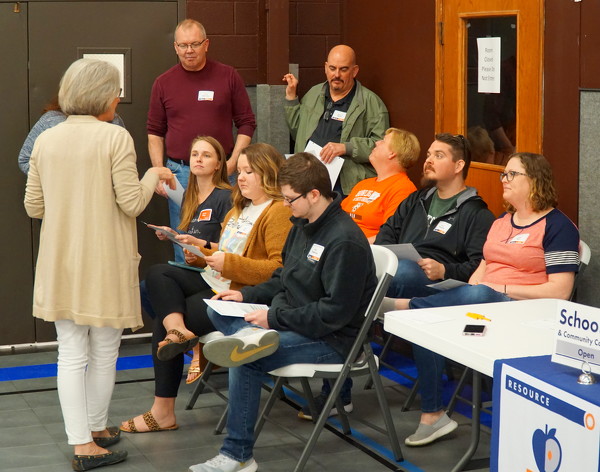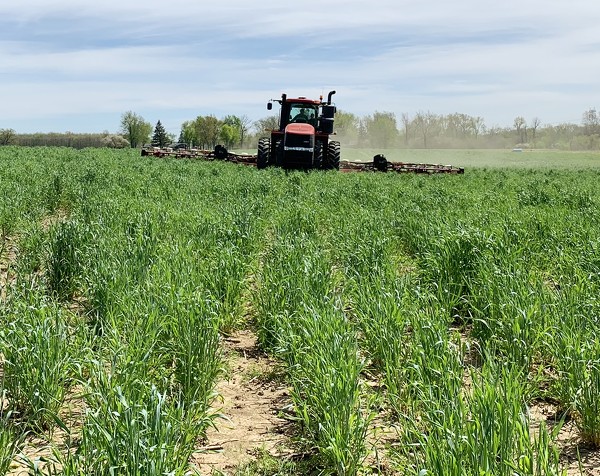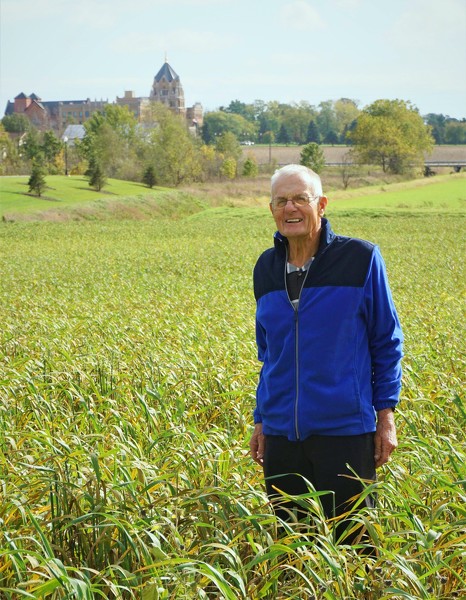Tuesday, March 22nd, 2022
Workshop participants experience simulated 'poverty'
By William Kincaid

Photo by William Kincaid/The Daily Standard
On Monday, Celina School teachers and civic leaders particpated in The Cost of Poverty Experience, a program that claims to simulate poverty.
CELINA - A student who shows up late to class or fails to turn in homework might come from an addiction-wrecked family teetering on the edge of homelessness.
To illustrate the bevy of complications, difficulties and tumult facing nearly 34 million or 12% of Americans who live in poverty, Celina City School teachers, community leaders and organizations underwent The Cost of Poverty Experience on Monday.
"This is another experience to help you build some empathy and build some understanding for working with our kids and enhancing what we can do for them in the classroom," said school district curriculum director Vaughn Ray.
The two-and-a-half hour poverty simulation, which also served as teacher professional development, was presented by the non-profit anti-poverty organization Think Tank based in Springfield.
It was organized by the school district and Our Home Family Resource Center, a Celina-based nonprofit, and held at Celina First Church of God.
Participants in the morning and afternoon sessions walked in the shoes of an impoverished family for a month. Each was assigned the role of a family member with their own set of circumstances.
Over the course of four 15 minute periods that together represented a month, each participant had to complete a series of tasks necessary for the family's survival.
Volunteers worked stations that represented the various institutions impoverished people must navigate on a monthly basis to meet their basic needs, including a bank, child and human services, court system, family wellness center, mega mart, homeless shelter, minimum wage employer, school, police/jail and pawn shop.
The scenarios played out in a simulation based on real-life stories of people who have experienced poverty, said Andrea Carter of Think Tank, which created COPE. In fact, Think Tank hires and consults with people with such experiences and seeks to elevate them by developing relationships across class, race and economic lines.
"We want people to rethink poverty," Carter said. "We believe in the power of those people that have lived-experience in poverty, incarceration, addiction, mental illness. We believe families in poverty have the ability to transform their own lives and through their lived experiences, they have the ability to transform their communities."
Participants soon discovered one of Carter's key points - poverty is complex and not just a financial issue. It's holistic with many accounting factors involving mental health, addiction, literacy, single parent households, English as a second language, veterans and people returning from incarceration.
Each one of those experiences manifested in Monday's exercise. Participants were required to secure transportation, attend school, apply for a job, check in with probation or parole, attend narcotics anonymous meetings and seek out government assistance, all with very limited time, money and resources.
Those forced to get around by walking had to wait three minutes at some stations to account for the extra time it takes to attend appointments versus those who have cars or access to public transportation.
Some families, just as in real life, had their ups and downs. Unexpected curveballs such as medical emergencies, incapacitation due to mental illness and bed bugs led to a snowball effect of troubles ending with participants either going hungry, without medication or homeless.
"Sometimes we all remove ourselves from that, whether we know it or not, so this is just a good opportunity to shine how real life happens to folks and how it impacts actual daily activities," said Kevin Draiss, Our Home Family Resource Center director.
And in many cases people find themselves without shelter temporarily due to the unexpected, he added.
"It's not always chronic," he said. "A significant number of people experiencing poverty, they have jobs but when they're stretched thin with the cost of healthcare, with the cost of childcare … and all these things they need to do for their children and themselves, it's just challenging."
The participants appeared to take the exercise very seriously, delegating duties among family members and running to stations before the time expired on each of the four periods.
Reflecting on the simulator, many participants expressed frustration with having to choose between food or medicine or shelter or seeing so much of their time tied up filling out forms, sitting in waiting rooms or waiting for callbacks to prove that they qualify for resources or services.
"It's just a lack of dignity and respect, a lot of times, for the humanity of our families, what we're asking them," noted Carter.
So much is wasted in playing the waiting game, one teacher said.
"You fill out the paperwork, you wait. You do the job interview, you wait. You work a week you have to wait to get paid," the teacher said. "And a lot of times if you're paying your bills here, then you're evicted. Now they don't have your address. You don't have a phone anymore. It's not like you didn't want to work but waiting to do the work was not paying anything."
Some participants, rather than resort to the homeless shelter, found temporary refuge at another family's residence.
"One thing about our families in poverty is the sense of community is very, very strong," Carter said. "People barter haircuts for you doing my taxes. Watching my kid for me taking a tree down in your front yard."
At the end of the session, Carter revealed that she too has lived experienced in some of the areas that can give rise to poverty.
Graduating high school a year early at 16 with a 4.0 grade point average, Carter said she got a full scholarship to college where she studied education. She started her teaching career at 20, had her master's degree paid for by her school district and was living her lifelong dram.
Her life took a turn in her late 20s when undiagnosed mental illness that ran in the family emerged, causing her to become unwell and exhibit behaviors reflecting bipolar disorder, she said.
Quite uncharacteristic of her, she said in manic phase she began drinking and experimenting with drugs, which in turn resulted in her losing everything - her teaching career, home, custody of her two young children at the time and eventually her freedom, as she was incarcerated for a period of time.
But she worked hard to get better and recently hit the 12-year mark of sobriety, she said. Through her role today, she said gets to help people understand what some parents and children are dealing with on a daily basis.
"I wasn't hired in spite of my background but I was hired because of my background," she said proudly.
Draiss said he hopes teachers and other participants will take what they learned on Monday to impact children in a positive way. He also noted that Our Home Family Resource can assist educators and other community leaders in finding the local resources available for those in need.
"We hope that Our Home and Celina continues to strengthen our partnership," he said. "We hope that's going to be a model that we can replicate through every school system in the county."



